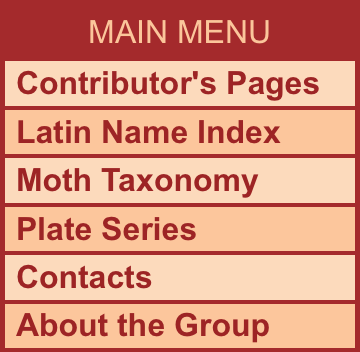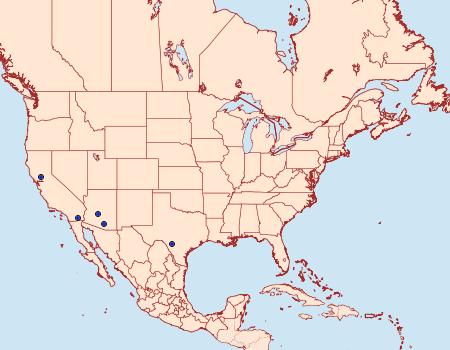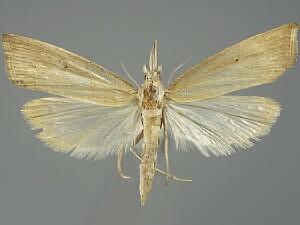Crambidae
990308n –
19308 Eoreuma loftini
(Dyar, 1917)
|
|
|
| Photographs are the copyrighted property of each photographer listed. Contact individual photographers for permission to use for any purpose. |
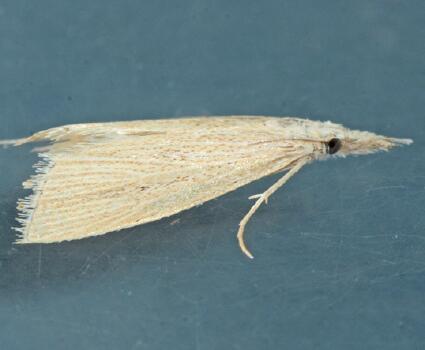
© Mark Dreiling [T]
|
| Distribution: |
Mexico; USA: FL to CA. |
Seasonality
and Size: |
Forewing length 8mm (n=1 male) |
Larva and
Host Plants: |
Larval have been recorded on Saccharum officinarum (sugarcane), Panicum miliaceum (millet), Oryza sativa (rice), Sorghum (sorghum, incl. Johnsongrass), Cymbopogon citratus (lemongrass), Zea mays (maize/corn) and other large grasses.
Hayden (2010) describes the larvae as being "whitish and nearly 2.5 cm (1 inch) when full-grown. They have a relatively pale brown head, two pairs of broken pink to purple longitudinal stripes, and they lack a mid-dorsal stripe.". (see references) |
Description/
Field Marks: |
Fore and hindwings are pale tan with nearly no pattern. Forewings of fresh specimens will have two darker, faint longitudinal streaks and a small black dot in the center of the wing. |
| Similar Species: |
- Eoreuma loftini and other Nearctic Eoreuma have a conical frons however E. densella (Eastern North America) has a round frons. Several Haimbachia spp. also have a conical frons, however they differ in wing maculation.
|
| Synonymy: |
loftini (Dyar, 1917) (Chilo); TL: Glendale, AZ. |
| Taxonomic Notes: |
Eoreuma loftini (Dyar, 1917) is recognized within the North American fauna north of Mexico and is additionally listed as 5493. |
|
| References (Caution: DNA barcoding at BOLD provides evidence of relatedness, not proof of identification; some BOLD specimens shown may not be sequenced.) |
- (1) Hayden, J.E. 2012. Mexican Rice Borer, Eoreuma loftini (Dyar) (Lepidoptera:Crambidae:Crambinae) in Florida [pdf]
- (2) Natural History Museum: HOSTS- A Database of the World's Lepidopteran Hostplants website
- (3) Mexican Rice Borer ID card [pdf]
|
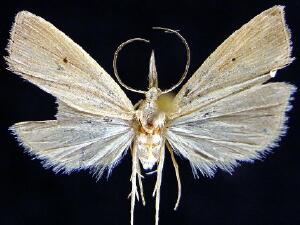
© Jim Vargo
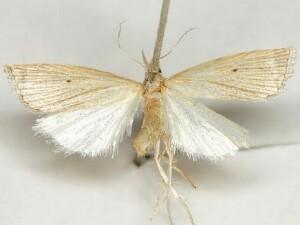
© Mike Quinn
|
